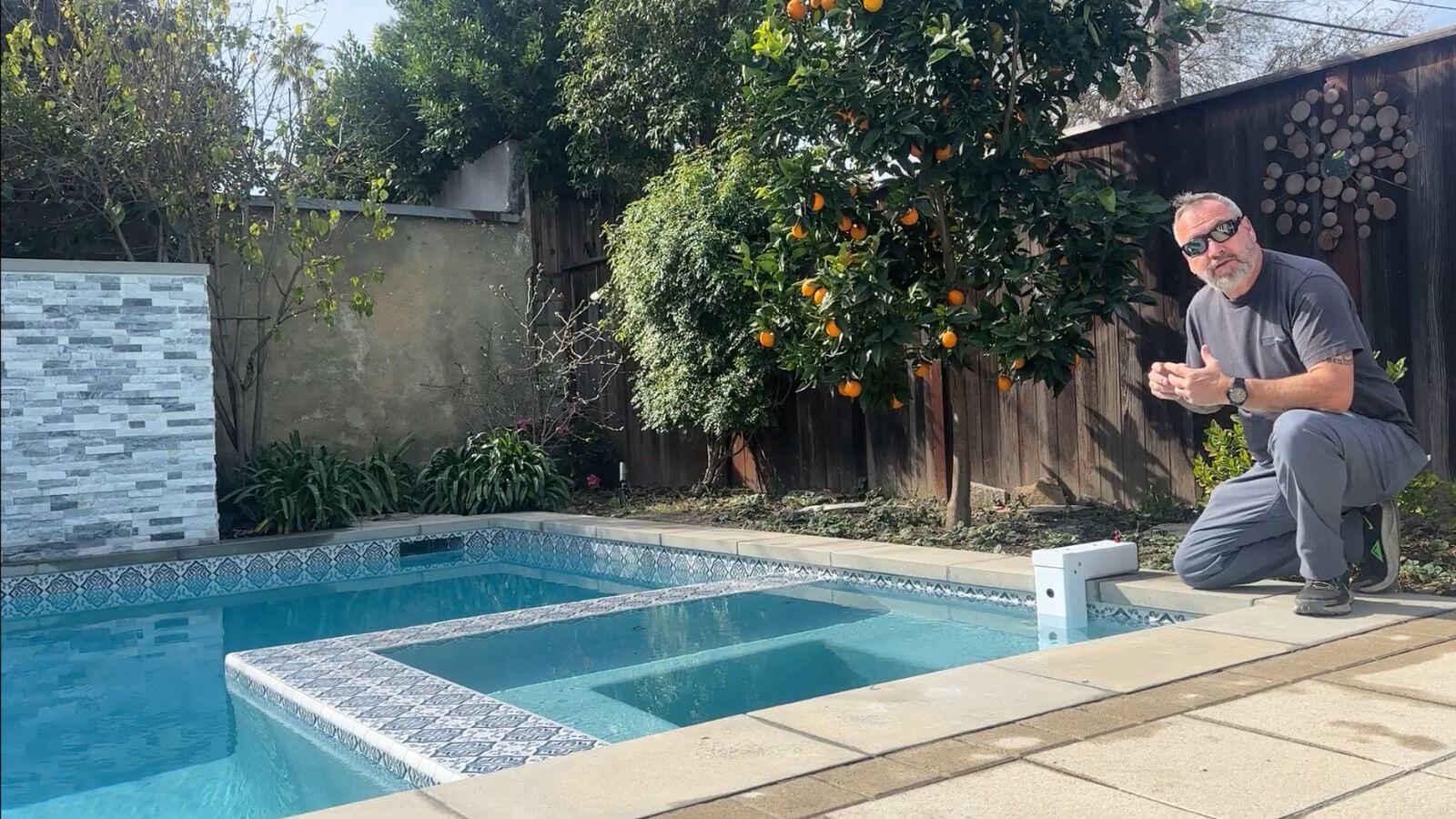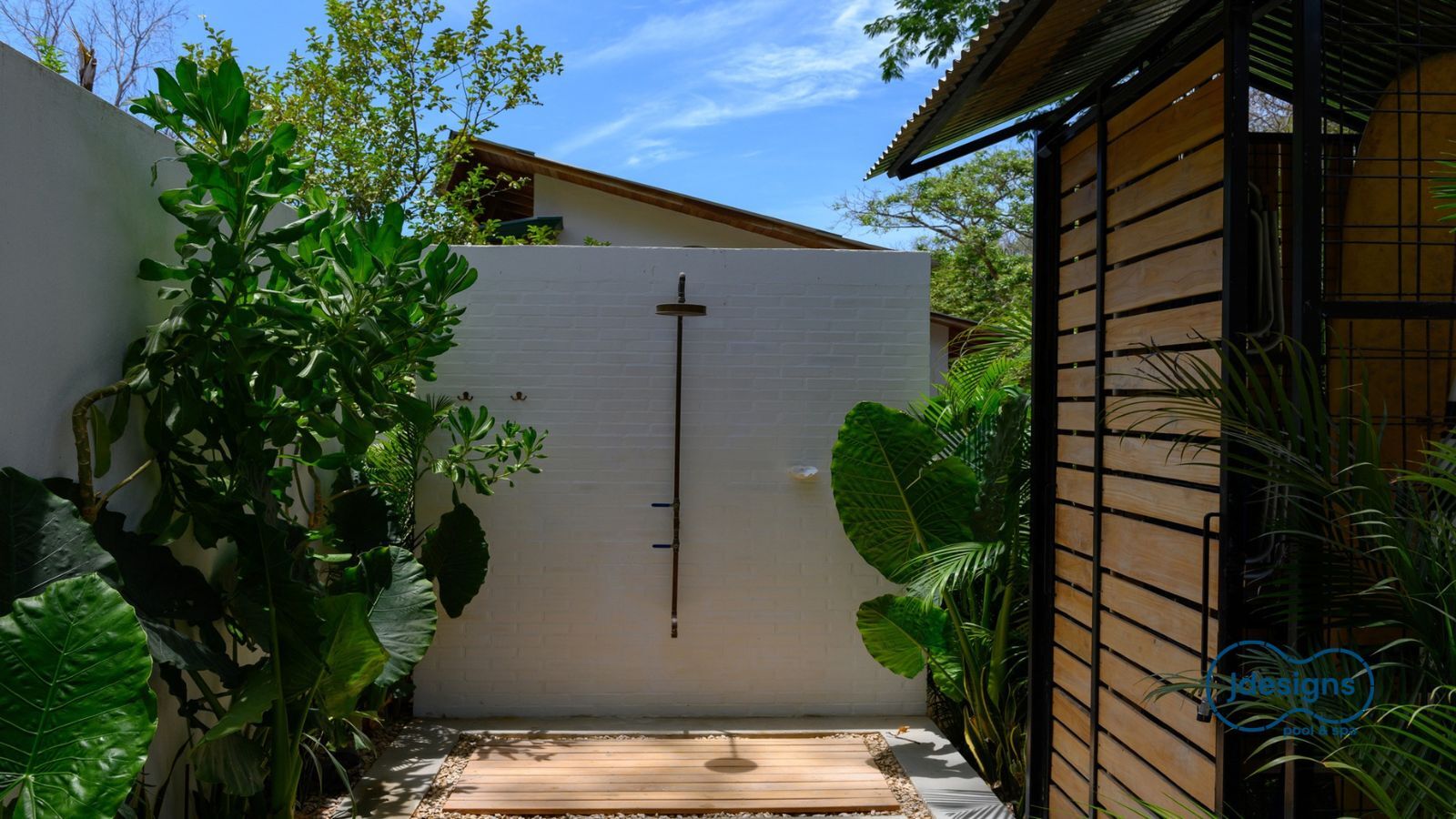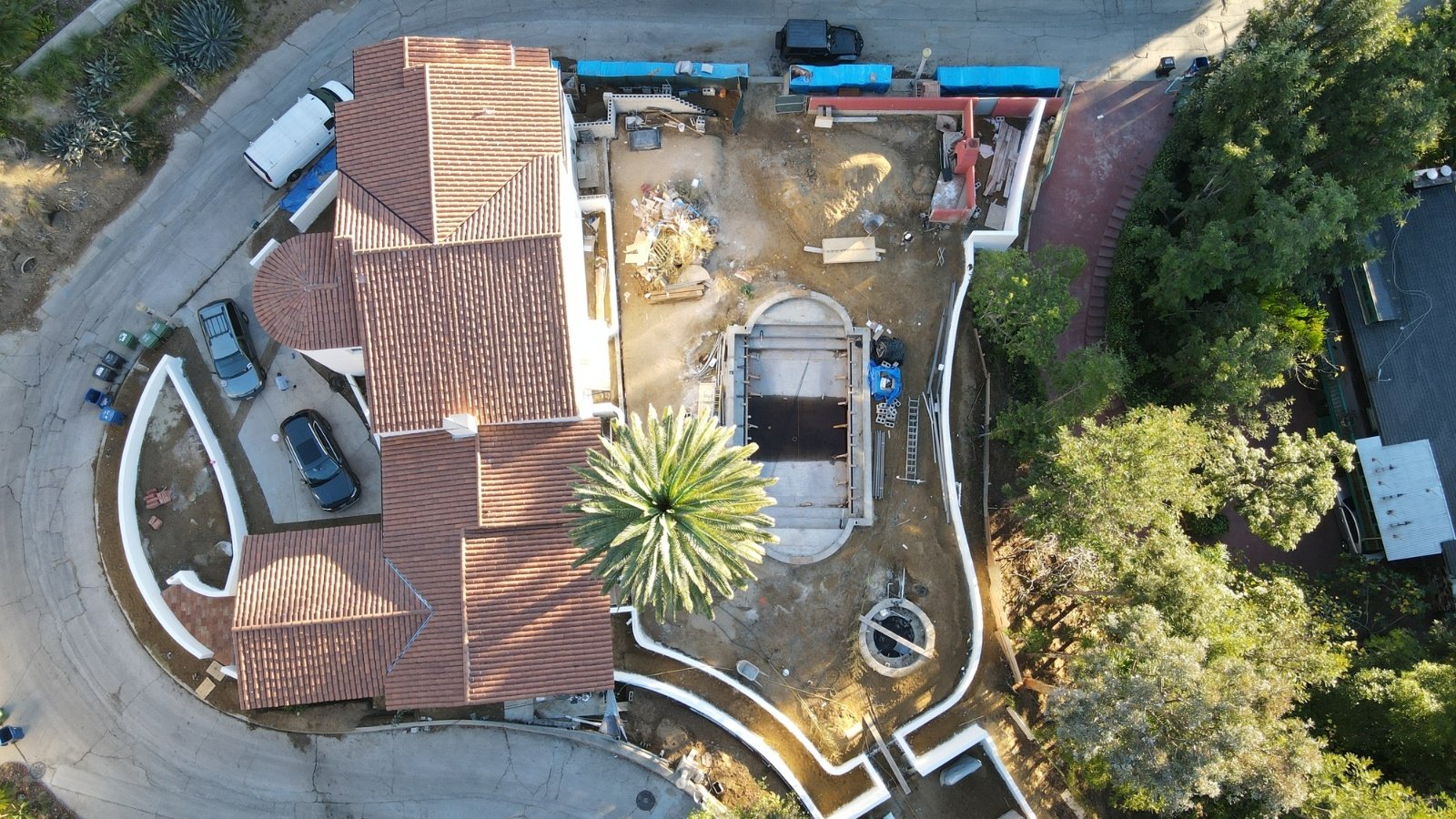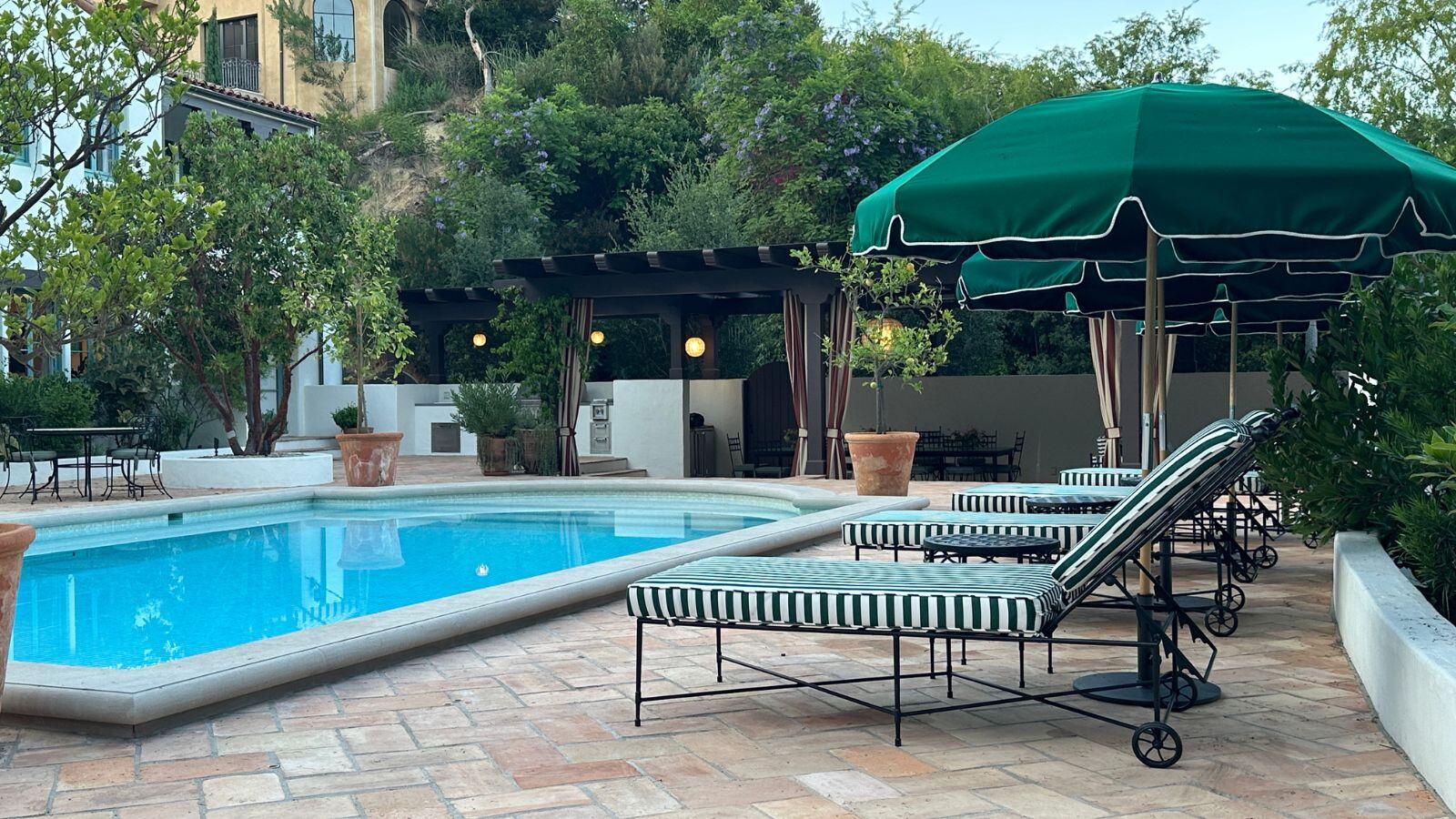Outdoor Showers for Pools: History, Design Ideas & How to Choose the best one
Water has always been more than a way to get clean; it’s how people reset and reconnect with their surroundings. From Japan’s misogi to the Turkish ...
3 min read
Daniela Escudero
:
May 17, 2025

Buying or selling a home with a pool in Los Angeles?
Worried a hidden pool issue could delay closing or cost you thousands?
This article walks you through what a professional pool inspection should include—so you can protect your investment and keep escrow on track.
From outdated equipment to structural concerns, we’ll cover the five areas that every buyer, seller, and real estate agent must understand before completing a pool transaction.
A real estate pool inspection ensures that all components of a pool—both visible and hidden—are safe, functional, and up to code. In a high-stakes market like Los Angeles, skipping a thorough pool inspection can lead to delayed closings, surprise repair costs, or even lost deals.
Unlike basic visual walk-throughs or home inspection add-ons, J Designs’ 100-point pool inspection provides a deep, code-based analysis grounded in California Building Code, Electrical Code, the American Concrete Institute, and other national standards.

Pumps and filters – Efficiency, damage, and signs of cavitation
Heaters – Functionality and safety compliance
Automation systems – Timers, remotes, and sensors
Flowmeters and gauges – Proper installation and readings
Electrical bonding and grounding – Includes ladders, lights, and metal components
GFCI breakers – Required near all pool-area outlets and lights
Pro Tip: Can electrical issues kill a deal?
Yes. Improper bonding or missing GFCIs aren’t just code violations—they’re major safety risks that can stall or cancel escrow.

Fencing – Minimum 5 feet with code-compliant latches
Gates – Must be self-closing and self-latching
Rescue equipment – Life ring and pole
Warning signage – “No Diving,” “Keep Gate Closed,” etc.
Pro Tip: Is this pool safe for my kids or guests?
Even if not legally required, these features reduce liability and increase resale value—especially for families.

Chlorine – 1.0–3.0 ppm range
pH – Ideal range: 7.4–7.6
Alkalinity & Calcium – Indicators of long-term water health
Cyanuric acid (stabilizer) – Under 50 ppm
Combined chlorine (chloramines) – Below 0.4 ppm
Clarity – Drains should be clearly visible from the deck
Pro Tip: What does bad water chemistry signal?
Neglect. Poor water chemistry damages equipment and poses health risks. A simple test can reveal years of improper maintenance.
![Copy of [TEMPLATE] Vertical Blog Visual](https://www.jdesigns.com/hs-fs/hubfs/1New%20Website/Blog%20-%20Visual%20Assets/Expansion%20Joint%20Blog/Copy%20of%20%5BTEMPLATE%5D%20Vertical%20Blog%20Visual.jpg?width=192&height=256&name=Copy%20of%20%5BTEMPLATE%5D%20Vertical%20Blog%20Visual.jpg)
Plaster – Smooth, clean, no etching or roughness
Tile and coping – Secure, aligned, and crack-free
Cracks or leaks – Especially near skimmers or waterline
Deck and joints – Look for movement, settling, or tree root intrusion
Pro Tip: Will this pool need resurfacing?
If plaster is rough or tiles are loose, it’s a renovation signal—and should be factored into negotiations.
.jpg?width=183&height=244&name=Inspection%20Vertical%20Blog%20Visual%20(2).jpg)
Spa systems, fountains, and water features
Fill lines, Deck drainage and runoff
Outdoor plumbing (showers, restrooms)
Lighting and electrical safety zones
Gas systems for appliances, fire pits, BBQs
Pro Tip: Do high-end features require extra care?
Yes. Specialty systems often have custom electrical, plumbing, and safety standards. Most general inspectors won’t know what to look for—we do.
Pre-listing inspections prevent escrow delays
Certified, photo-documented reports add credibility
Detailed code references support repair requests and negotiations
Licensed contractor, designer, and consultant on every inspection
.jpg?width=434&height=325&name=IWI%20Horizontal%20Blog%20Visual%20(1).jpg)
We’re not here to “pass or fail” a pool—we’re here to provide clarity so you can make confident decisions.
Our 100-point real estate pool inspections typically take several hours, depending on pool size and added features.

Price may vary based on:
Number of pools/spas
Complexity of systems
Travel or urgent timelines
Pro Tip: Why is this more expensive than a home inspector add-on?
Because we go deeper. This is a comprehensive, safety-first inspection—not a quick visual check.
High-resolution photo documentation
Clear fix/replace/watch recommendations
Safety and code compliance notes
Long-term maintenance tips
Easy-to-read report (buyer/seller friendly)
Pro Tip: Will I know what to do next?
Absolutely. Our reports are designed to empower—not confuse.
Poor chemistry can damage equipment, indicate neglect, or create health hazards. A quick test reveals a lot.
Pro Tip: Do luxury features require extra care?
Yes, specialty items often require custom plumbing, lighting, or safety considerations, which a standard home inspector might miss.
Whether it's your first transaction or your hundredth, our goal is the same: protect the investment and keep your deal on track.
Let J Designs deliver a photo-documented, code-backed pool report before you close on your property.

Water has always been more than a way to get clean; it’s how people reset and reconnect with their surroundings. From Japan’s misogi to the Turkish ...

Building a luxury pool is a significant investment, one that should deliver both beauty and peace of mind. Yet, even the most impressive projects can...

For more than twenty years, J Designs has partnered with discerning homeowners to create exceptional pools and luxury outdoor environments. Again and...